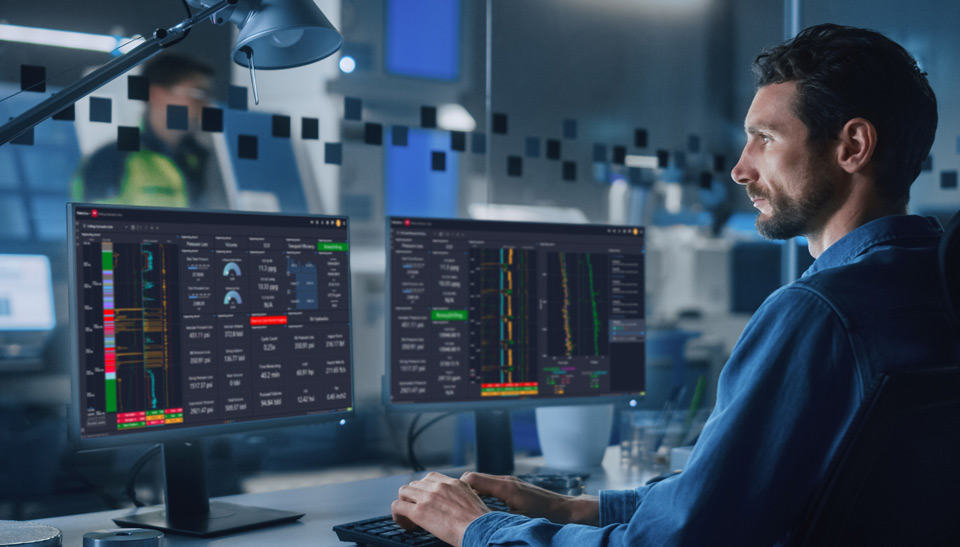Leverage expertise across multiple assets
Real-time Operations Centers (RTOCs) have been a mainstay in the industry for over a decade now. As an RTOC provider, Petrolink has been at the forefront of advising on and building collaborative decision-making spaces for our clients all around the world. As we begin a new year it is worth spending a little time looking at how they operate, the benefits they bring and how centers may evolve in the future.
So why would an operator invest significant resources (both in terms of time and capital) into developing an RTOC? The central driver is data volumes. All operators are facing growing amounts of data flowing in from the rig- this might be in the form of MWD drilling data or geological and engineering streams. When this data builds up without suitable organization decision-making can be impeded. A well-designed and functioning RTOC turns that on its head allowing for management of much greater data volumes and ensuring the end-users can act quickly.


Here are some of the highlights:
- Benchmark and improve KPIs. Having a central location into which data flows removes much of the complexity associated with benchmarking rig performance. Quickly comparing performance across rig assets including day vs night shift, tripping speed or ROP is much easier with an RTOC.
- Reduce the number of people on the rig. Safety is non-negotiable in our industry and removing people from the rig where possible takes them out of harm’s way. Technology developments such as high bandwidth connection and data standards, have made these moves possible. The trend to reduced POB levels at the rigsite is clear and an operations center can help this shift.
- Reduce costs. Prior to RTOC’s you may have had one asset geologist looking after one field at a time. Today it is routine for drilling experts to monitor multiple rigs at one time, this allows the operator to spread expertise around their rigs and drive down the costs of running their operations.
- Manage large data volumes. RTOCs are inherently scalable solutions and can grow to manage the ever-increasing torrent of data coming from the rig. Here at Petrolink, we have developed and managed RTOC’s which monitor hundreds of simultaneous wells.
- Enable collaboration. Breaking down siloes is one of the main goals and RTOC’s are a big step towards this goal. Studies show that better decisions are made working in small groups, an RTOC avoids having to make decisions in isolation at the rig site. Simply put; lessons learned can be quickly exchanged often mid-way through the project well before the well is completed. We see not only collaboration across rigs but also across different disciplines (Drilling, Geoscience and Pore pressure teams) can each have a voice. The center is also conducive to better training providing a supportive environment to new arrivals allowing them to learn from senior members and settle into taking action.
- Run resource intensive processing. RTOC’s by their nature centralize data meaning that rigsite bottlenecks are removed and heavy-duty processing can be carried out in one facility. This opens up the necessary throughput of data to run alert algorithms that generate user alarms or notifications.
- Automate and accelerate. RTOC’s today do not solely rely on a user analyzing and processing wellsite data manually. Technology within the center provides automated interpretation which not only streamlines the decision-making process but leads to higher quality outcomes.
Looking ahead
The trend to more remote work is now well established and RTOC’s can play a key role in extending this. Many are now entirely remote ‘rooms’ where discussions and decisions take place over chat applications. So-called ‘virtual’ RTOCs function in a similar way to their physical counterparts without the overheads of housing staff in a central facility.
In the years ahead we are likely to see this trend increase and the development of ‘hybrid’ RTOC’s a blend of centralized and virtual rooms will become the norm.
Above all RTOC’s are all about improving decision-making. Whether that is taking lessons learned from one asset and immediately applying them to another one across the world or optimizing local operations. Here at Petrolink we harness best practices, market leading infrastructure and experts to implement RTOC’s remotely or on-premises.








